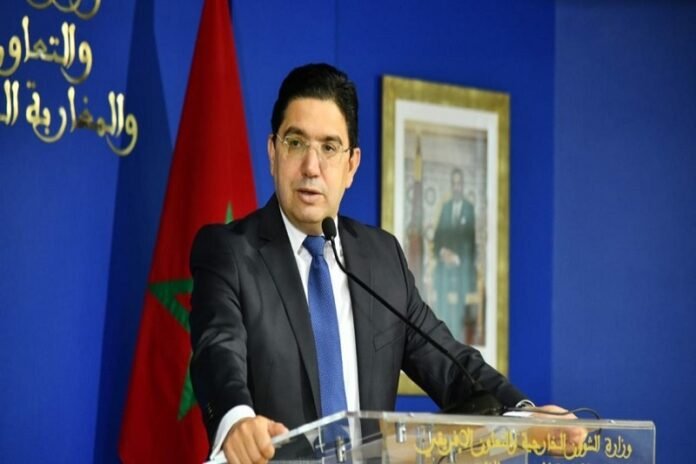In an unprecedented move, the European Court of Justice issued a ruling annulling the agricultural and fisheries agreements between Morocco and the European Union. This ruling, based on the “lack of consultation with the Sahrawi people,” sparked significant debate over its credibility and political implications, prompting Morocco to reassess its international partnerships, particularly with Brussels.
A Firm Stance from Morocco: Sovereignty Above All
Morocco responded decisively to this ruling. The Moroccan Ministry of Foreign Affairs expressed its categorical rejection of the ruling, noting that it suffers from “legal flaws” and “factual errors.” Morocco clarified that the matter does not concern it as it was not part of the judicial process leading to the ruling. The Kingdom sees this decision as an attempt to politicize the European judiciary and overstep the authority of the United Nations, asserting that no agreement or partnership will be accepted if it does not respect its territorial integrity and sovereignty over its southern provinces.
International Partnerships in Light of Morocco’s New Vision
Morocco no longer approaches its partnerships with the same strategy as before. It has adopted a new vision, based on partnerships founded on mutual respect and shared interests. In his Throne Day speech, King Mohammed VI emphasized that Morocco’s sovereignty, particularly over its southern provinces, is a red line that cannot be crossed. This vision presents the European Union with significant challenges in maintaining its partnerships with Morocco, especially given the internal divisions among its member states on the issue of the Moroccan Sahara.
European Divisions and Future Challenges
The European Court’s ruling reflects internal divisions within the European Union itself. While countries like Spain, France, and Germany support Morocco’s autonomy proposal as a solution to the conflict, the court’s ruling seems to represent specific political orientations within European institutions. This situation compels Morocco to reconsider its partnerships with the EU as a bloc and to explore bilateral partnerships with European countries that support and understand its positions.
Redefining the Geopolitical Map
Today’s Morocco does not rely on the European Union as it once did. Rabat has become a regional player with influence in Africa and the Arab world, holding strategic partnerships with global powers like China, Russia, and the United States. This geopolitical rise allows Morocco to impose reciprocity in its relations with all its international partners, including the European Union, which will need to adapt to Morocco’s new directions if it wishes to maintain its strategic relations with the Kingdom.
The European Union Faces a Real Test
In light of these transformations, Brussels finds itself facing a new challenge: to review its foreign policies toward Morocco. The Kingdom, which now enjoys a more independent and confident foreign policy, asserts that it will no longer accept unbalanced partnerships. Some European nations, like Spain, may be tempted to sign direct bilateral agreements with Morocco in sectors such as fishing and agriculture, outside the framework of the European Union.
Outlook for Morocco-European Relations: Towards New, Balanced Partnerships
The European Court of Justice’s decision marks the beginning of a new phase in Morocco-European relations. Morocco, which has proven its ability to adapt to international geopolitical shifts, will continue to seek partnerships based on mutual interests and respect. Rabat refuses to continue agreements that do not truly benefit its sovereignty and supreme interests. For its part, the European Union needs Morocco in several areas, such as counter-terrorism, migration, and economic cooperation, which may prompt it to reconsider its position and adjust its priorities.
In Conclusion: Morocco’s Sovereignty is a Red Line
Today, Morocco is more determined than ever to defend its national interests. Future partnerships will not be made at the expense of its sovereignty or territorial integrity. The European Union must reevaluate its relations with Morocco on new foundations built on respect and reciprocity. This phase will be an opportunity for the Kingdom to strengthen its international alliances and forge new, stronger, and more balanced partnerships.


